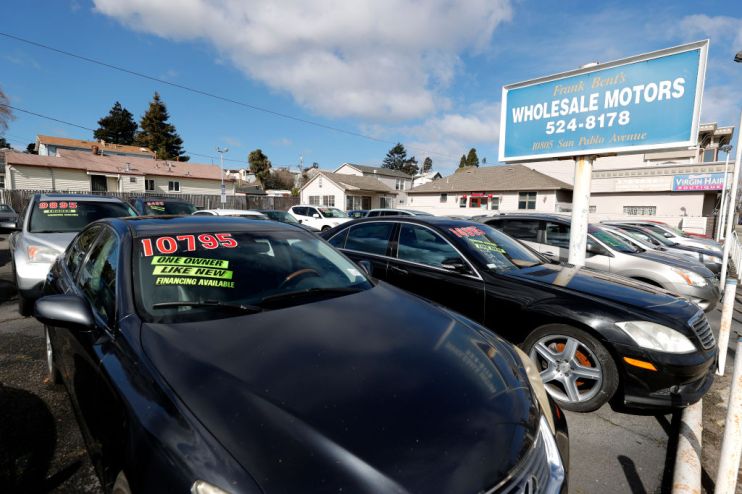Used car sales double as chip shortages deplete new model stocks

The number of used cars changing hands doubled in the second quarter as stock shortages forced some people to turn to second hand models.
According to the Society of Motor Manufacturers and Traders (SMMT), 2,167,504 used models were bought in the last period, up 108 per cent on 2020.
The number sold was also up 6.6 per cent on 2019, making it one of the best ever quarters for the second hand car market.
Car manufacturers around the world have been forced to slash production for much of this year due to the global shortage of semiconductor chips.
However, with Covid restrictions lifting, and people wary of using public transport, demand for private vehicles has surged back.
Despite a huge surge in the percentage of used battery electric and hybrid cars sold, second hand transactions were still dominated by petrol cars.
Plug-in sales made up just 1.3 per cent of the second hand market, the SMMT said, with the number of used plug-ins changing hands in the second quarter comparable with the number of new plug-ins bought in the third quarter of 2015.
SMMT chief executive Mike Hawes said: “This is welcome news for the used car market as transactions rebounded following nationwide lockdowns which closed retailers.
“More motorists are turning to used cars as supply shortages continue to affect the new car market, and the increased need for personal mobility with people remaining wary of public transport as they return to work.
“A buoyant used car market is necessary to maintain strong residual values which, in turn, supports new car transactions. We now need to see a similar rebound in new car sales to accelerate the fleet renewal necessary to deliver immediate and continuous improvements in air quality and carbon emissions.”
The most popular models were the Ford Fiesta, the Vauxhall Corsa, the Ford Focus and the Volkswagen Golf.
Commenting on the data, Jim Holder, editorial director, What Car?, said: “The rise in used vehicle sales has been driven largely by two events over the past few months; the general increase in car buying activity that is resulting from the further easing of Covid restrictions and the ongoing microchip shortage that’s pushing new car buyers to the used market.”
There have also been an increasing number of consumers in the UK and abroad that are eying a electric vehicle (EV) purchase.
Of those looking to buy a car, some four-in-10 people would prefer to buy an EV, according to the latest EY Mobility Consumer Index (MCI).
The survey, which polled more than 1,000 consumers across the UK and 9,000 globally, found that 16 per cent more consumers were keen to buy an EV over a car reliant on fossils fuels than in November.
EY-Parthenon partner and UK future mobility lead, Charlie Simpson, said: “The rise of the EV across the UK and the globe is gathering pace, with our latest reports showing that a significant number of UK consumers looking to buy a car will actively consider an EV, up 16 per cent from November 2020.
“Rising EV sales have been one of the stand outs for UK car sales over recent quarters and this rise is set to increase.”